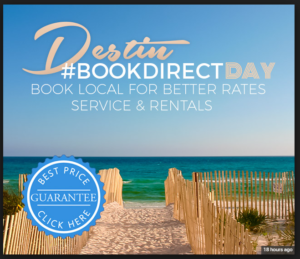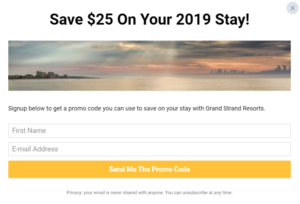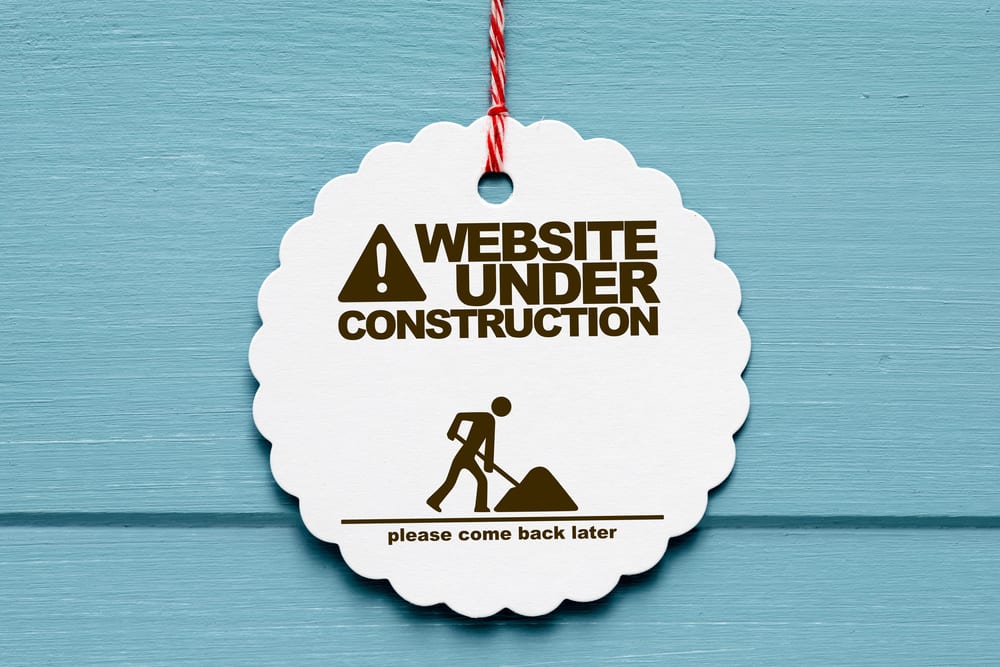Like thousands of ladies across the world, I thoroughly enjoyed Rachel Hollis’s book, Girl, Wash Your Face. If you’ve never read the book, it really has nothing to do with washing your face, but it’s a catchy title. It is about the lies we tell ourselves and the actual truth we should listen to. We often get stuck hearing mixed messages or believing ideas about marketing that are biased or misinterpretations of reality. This article explains certain marketing tactics with a new approach in a way that we feel confident to change that belief or behavior. Who doesn’t need some self-help when it comes to marketing your vacation rental website?
The title “Girl, Fix Your Website” came about when these concepts were first presented at the Vacation Rental Women’s Summit. This article isn’t all about fixing your website (any more than it’s targeted toward just women). It’s a holistic view of your marketing, a summary of misconceptions you may believe about how you should mix your marketing, and a pep talk to make you feel fearless in approaching different strategies.
Misconception #1—You Can’t Compete with the 800lb Gorilla Websites
 An OTA is an online travel agency or an online travel aggregator. OTAs combine all the vacation rentals, hotels, villas, and other properties into one website that travelers can use to search for their destination and dates and find available rentals all in one source, rather than going to individual websites. For the consumer, it is easy to have all the choices readily available to shop price, pictures, and amenities and to book directly through one site. A convenience fee is added to the check-out page that the consumer pays on top of the rent, taxes, and other fees. It’s a lot of work and investment to provide this service to consumers, not to mention it requires huge marketing budgets. Expedia Inc. spent $5.3 billion dollars in marketing and selling fees in 2017 according to PhocusWire and is rumored to have spent upwards of $5.7 billion in 2018. I don’t know about you, but my marketing clients don’t give me those kinds of budgets.
An OTA is an online travel agency or an online travel aggregator. OTAs combine all the vacation rentals, hotels, villas, and other properties into one website that travelers can use to search for their destination and dates and find available rentals all in one source, rather than going to individual websites. For the consumer, it is easy to have all the choices readily available to shop price, pictures, and amenities and to book directly through one site. A convenience fee is added to the check-out page that the consumer pays on top of the rent, taxes, and other fees. It’s a lot of work and investment to provide this service to consumers, not to mention it requires huge marketing budgets. Expedia Inc. spent $5.3 billion dollars in marketing and selling fees in 2017 according to PhocusWire and is rumored to have spent upwards of $5.7 billion in 2018. I don’t know about you, but my marketing clients don’t give me those kinds of budgets.
Many individual vacation rental companies advertise or list their properties on OTAs to get their inventory in front of the many visitors to the OTA websites. Whether you have 50 properties or 1,500, many vacation rental marketers feel like their efforts to get to the top of the search engines, both organic and paid, are inadequate compared to the big marketing budgets; however, what OTAs lack is the ability to optimize for local search. Because they don’t have a local address, local VR companies’ have a greater opportunity to get ahead in the map pack of local search. Google has given us the upper hand by keeping local search map results limited to businesses that have a physical address in the area. That means when people are searching for “Panama City Beach vacation rentals,” your company has the opportunity to beat out the OTAs. In fact, Google is now trying to be an OTA by quickly introducing their “local hotel map pack” designed for “destination + vacation rental” keyword phrases. Many hotels have to go through distribution channels to get their inventory up on Google results through the hotel map pack. Right now, though maybe only for a brief time (Google changes things before I can even get stuff published), you can get a link to your website. So, make sure you have pages built out on your website for your individual rentals (optimized property detail pages) and also any resorts/condominium complexes for Google to link to.
Another area to focus on is branded campaigns. Branded campaigns are set up in Google Ads or Bing Ads as pay-per-click (PPC). For instance, if your company name is “The Best Breckenridge Lodging Company,” you would want to set up an ad campaign to show an ad to your website every time someone searches for your company name. Yes, you should show up on top organically anyway, but if you don’t bid on it, eventually, someone else will—including the OTAs. Your cost per click will be much lower than that of your competitors because your quality score (the factors Google and Bing put into how much to charge someone on a bid) will be higher. The higher the quality score the lower the cost per click. Surprisingly, most destinations aren’t as saturated with competition as the hotel industry is at this time, but I see it coming. Lock in your placement now.
Misconception #2—Repeat Guests Are Going to Book with OTAs No Matter How Hard You Work to Get Them to Book Direct
I hear this often when working with my vacation rental clients. You may think because your company is small and fairly new that people won’t remember your company to book direct. That can be true if you don’t take the right steps to ensure your guests will return and book with you.
When guests stay with you, make sure you communicate that they can save by booking direct on your website and avoid paying the convenience fee most of the OTA sites charge. VRM Intel was awesome enough to recognize the power and best interest for guests to return and book direct, so they created #BookDirect day. But, let’s face it, this should be more than just one day a year.
Along the lines of saving money by avoiding paying fees, you can save guests even more by offering your past guests a discount to book again, especially if they book early. Every vacation destination has a period of time when people often book early (or they used to). Often, this might happen around tax time or at the beginning of the year when many families just spent the holidays together. Because accommodations pricing trends have trained the consumer to wait to get the best deal, many reservations now come in at the last minute. Offering discounts earlier in the booking season allows you to fill the books early and not have to slash pricing in a desperate move to fill dates. The best way to promote this is through guest history emails.
Use this and every email as an opportunity to put your brand and tagline in front of the guest. From confirmation, pre-arrival, during-stay, and post departure, I hope you are using branded emails with a ton of information about the destination to brand your company and show your expertise in the destination.
Same with your website—the more local area information you have that others don’t (or the bettered organized) through blogs, events, or things to do in the area to help your guests plan their vacation, the more they will use your website and your company for this vacation and the next.
Misconception #3—You Have to List Your Inventory on OTAs
I’m not saying you should yank all your listings from OTAs tomorrow, but I am saying you should work toward less dependency on them. I hear it all the time: “Vanessa, I’m a small company; I have to put all my inventory on the OTAs. They book all my inventory up.” To that, I tell the story about working with the major hotel groups in Myrtle Beach a decade ago before my time at ICND These hotel groups were the biggest, the best, and the most innovative in the area. They were among the first in the country to have websites and online booking engines to get direct bookings. But when Expedia, Priceline, and Travelocity promised to grow their shoulder season, fill their summers, and maximize “heads in beds,” these major hotel groups jumped quickly on the bandwagon. They soon realized they were giving away their loyal repeat business and now competing organically as well as through PPC with the OTAs. Their marketing costs were increasing, and their commission was decreasing because they were now sharing it with OTAs. Sound familiar? The point of telling this story is that if you are in a market where you don’t have to advertise with the OTAs, keep it up. If you are in a market where you need to, work on digital marketing.
 Many OTAs do not offer discounts through their site, so make sure to on your website. Use promo codes that consumers can enter at booking, so they can get their discounts online. Make sure your specials aren’t call-in only. It can even be a “Book-Direct Special”: enter promo code BookDirect at checkout and save $25 off your first rental with us. It’s always important to give anyone the ability to book any stay from your website direct—any day, any time.
Many OTAs do not offer discounts through their site, so make sure to on your website. Use promo codes that consumers can enter at booking, so they can get their discounts online. Make sure your specials aren’t call-in only. It can even be a “Book-Direct Special”: enter promo code BookDirect at checkout and save $25 off your first rental with us. It’s always important to give anyone the ability to book any stay from your website direct—any day, any time.
Speaking of websites, when it comes to decreasing your dependency on OTAs for bookings, you should start by creating a website that will drive conversions. If it’s just a website to have a website, you should analyze it to make sure it’s easy to book with no barriers to booking. This aspect is so important, I could break down a list of misconceptions based on your website. Bottom line? You need a website that makes it easy to search and book and from which you can quickly build out content on your own and track conversions. That’s a good place to start.
Next, I recommend PPC. Not just any keyword phrase but keyword phrases with intent. There is a funnel when it comes to consumers searching for a vacation. Intent means that the search is focused further down the booking funnel such as “oceanfront Destin vacation rental” or “Breckenridge lodging with hot tub.” Think destination + rental/lodging + a popular feature/amenity. Google Keyword Tool will help you figure out these keyword phrases and show what the volume is.
These are the same keyword phrases I suggest looking to optimize organically for, which goes hand in hand with PPC because you are going to want to have landing pages to direct your ads to. As you look at your conversion rates from your PPC, you know which searches you should also work on to rank organically and put the most effort into.
In addition to email marketing to stay in front of bookings from the OTAs, you can use social media remarketing, match up those emails, and show specific ads to follow and direct back to your website. This reinforces your brand and can lead to the next booking. Social media in general does give the social validation to help consumers choose your company. Consumers will get a chance to see your tone, how often you post, and what other consumers thought of your company through reviews.
If you were able to catch my session at the Vacation Rental Women’s Summit, I want to say thank you. There were so many wonderful sessions to attend. I’m honored to have had you listen to mine. I hope that the session and this article help empower you, as a manager and/or marketer, to work on your marketing strategy and include or improve your book-direct tactics.


